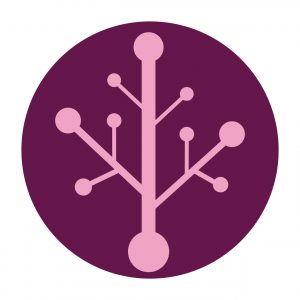My interview on the Social Innovation approach in Luxembourg: If you want to go fast, go alone, if you want to go far, go together

This article has been published in the last newsletter of Innovationsocial.lu the recently created initiative to promote social innovation in Luxembourg.
The project is lead by CRP Henri Tudor and supported by the Department of Solidarity Economy of the Luxembourg Ministry of Economy and Foreign Trade. There is a working group to co-design social innovation in the country involving all the different key partners and I have the privilege of working with them.
Read the article below.
“Feedback of Guadalupe De La Mata about social innovation approach in Luxembourg. She shares with us five conditions of collective impact success. Collective Impact is more rigorous and specific than collaboration among organizations. There are five conditions that, together, lead to meaningful results from Collective Impact:
1. Common Agenda: All participants have a shared vision for change including a common understanding of the problem and a joint approach to solving it through agreed upon actions;
2. Shared Measurement: Collecting data and measuring results consistently across all participants ensures efforts remain aligned and participants hold each other accountable;
3. Mutually Reinforcing Activities: Participant activities must be differentiated while still being coordinated through a mutually reinforcing plan of action;
4. Continuous Communication: Consistent and open communication is needed across the many players to build trust, assure mutual objectives, and appreciate common motivation
5. Backbone Organization: Creating and managing collective impact requires a separate organization(s) with staff and a specific set of skills to serve as the backbone for the entire initiative and coordinate participating organizations and agencies. To complete her pitch, she proposes this video which describes the concept of collective impact, and shows the 5 conditions of collective impact in action.
Large-scale social change requires broad cross-sector coordination, yet the social sector remains focused on the isolated intervention of individual organizations. Substantially greater progress could be made in alleviating many of our most serious and complex social problems if non-profits, governments, businesses, and the public were brought together around a common agenda to create collective impact. This is the approach we are following in Luxembourg by co-design of social innovation involving all the different key partners. We are at the beginning of our collective approach. If you are interested in exploring how collective impact can help you accomplish your mission, Guadalupe recommend us these two articles:
- John Kania and Mark Kramer’s “Collective Impact” essay published in the Stanford Social Innovation Review. It can be downloaded here.
- David Bornstein’s New York Times article on Collective Impact titled, “The Power of Partnerships.”: Click here to read it.
Through this newsletter, the Social Innovation team of Tudor wish to thank all the participants of workshops and hope each could go on his investment & time to develop the ideas.
As a reminder, Guadalupe is Founder and Director of Planet for Change. She is also CEO of the Social Innovation think tank Innovation for Change, where she gives support to a myriad of social innovation projects in the private and public sectors, and a Partner at HUB Madrid. Guadalupe´s multidisciplinary approach to social innovation is based on her extensive career helping businesses, people and ideas worldwide. Guadalupe has been a Board member of various microfinance banks and worked for more than 15 years leading social innovation, poverty reduction and microfinance projects worldwide as senior employee of international development institutions, such as the European Investment Fund, the European Bank for Reconstruction and Development and the European Investment Bank. She participates in social innovation approach in Luxembourg”.


[…] Por eso he compartido proyectos como Nesta en el Reino Unido y MindLab en Dinamarca, o la iniciativa en la que he estado involucrada este último año para crear un ecosistema de Innovación Social en Luxemburgo promovida por el centro de Investigación Tudor. Si os interesan algunas de mis conclusiones podéis leerlas en esta entrevista con algunas ideas para conseguir impacto colectivo. […]